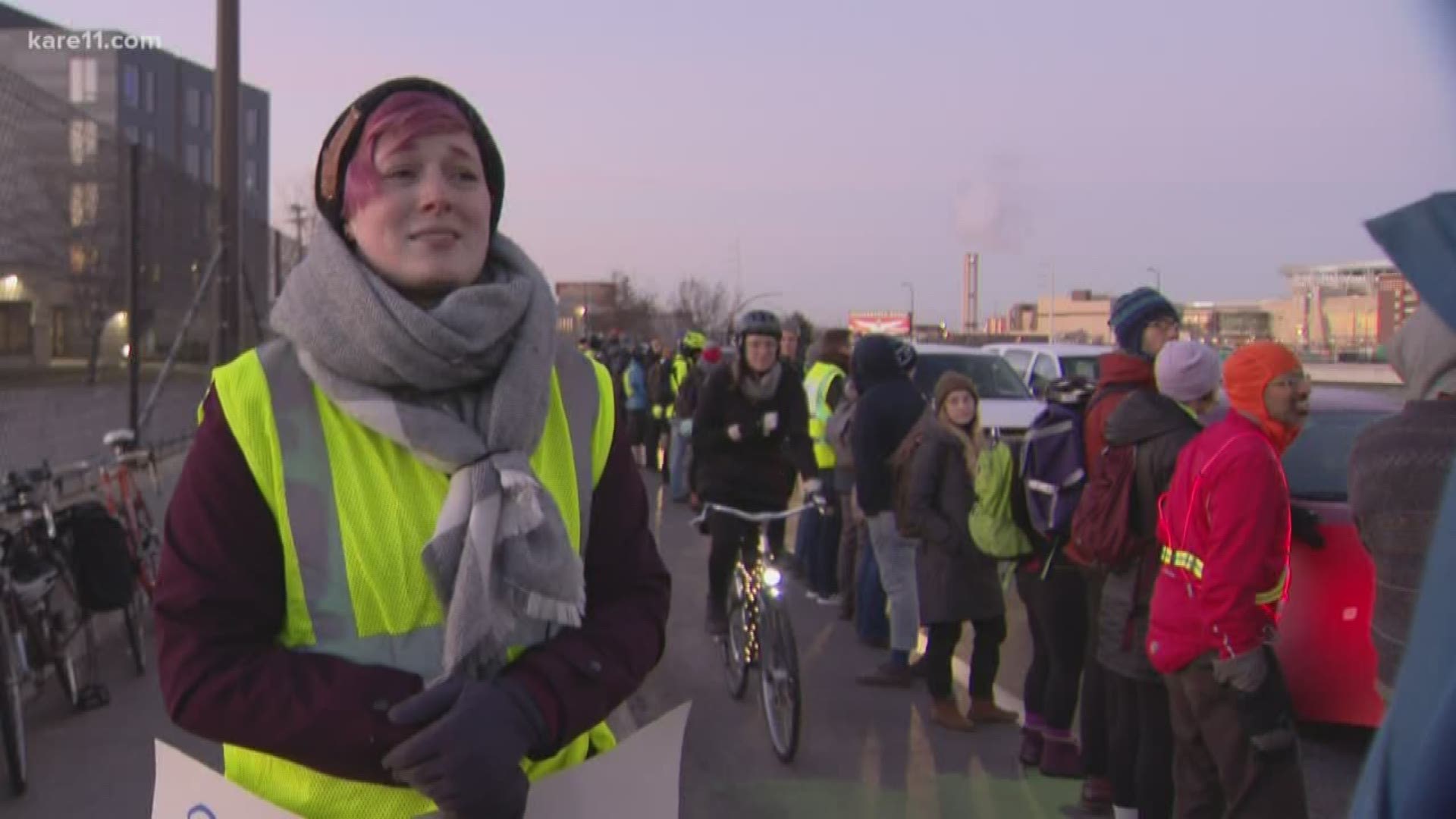MINNEAPOLIS — Don't run us over, one sign read. Streets are for everyone, read another.
As daylight quickly turned to darkness early Friday evening, a so-called "Human Wall" of bicycle advocates held these signs — and more — as they protected a bike lane at 12th and Linden near downtown. Just 48 hours earlier prior to their demonstration, a man lost his life at this same intersection when he was hit by a truck.
"This is a matter of how people live, how they get their groceries, how they get to their jobs," Keelia Silvis said. "They need to be safe and know they're not going to die on the way home to their families."
Silvis and others in the "Human Wall" called on the city to set more bike-friendly policy. As a public health masters' student at the University of Minnesota, Silvis called it a matter of equity, by improving the lives' of people who cannot afford to drive cars.
"We need better transit," she said, "and bike safety."
Nathan Koster, the transportation planning manager for the city of Minneapolis, told KARE 11 that bike and pedestrian safety is a priority.
The city signed on to the "Vision Zero" plan a few years ago, which hopes to eliminate traffic fatalities by 2027. A three-year action plan could be approved by the city council as early as next week.
"No death on any city street is acceptable," Koster said.
The city was also recently authorized by the state to lower speed limits on its streets — and it may explore that early next year, according to Koster. Minneapolis has also added more than 30 miles of "protected bikeways" in the past five years, meaning paths that are completely separate from vehicle traffic.
"These are elements that are making streets safer for people walking, biking and driving," Koster said.
Back at 12th and Linden, the Human Wall offered its own suggestions.
"Definitely, speed limits are important," Jen Curti said. "I think when you have dangerous intersections like this, you need to study them more in-depth and figure out how to re-engineer infrastructure."

